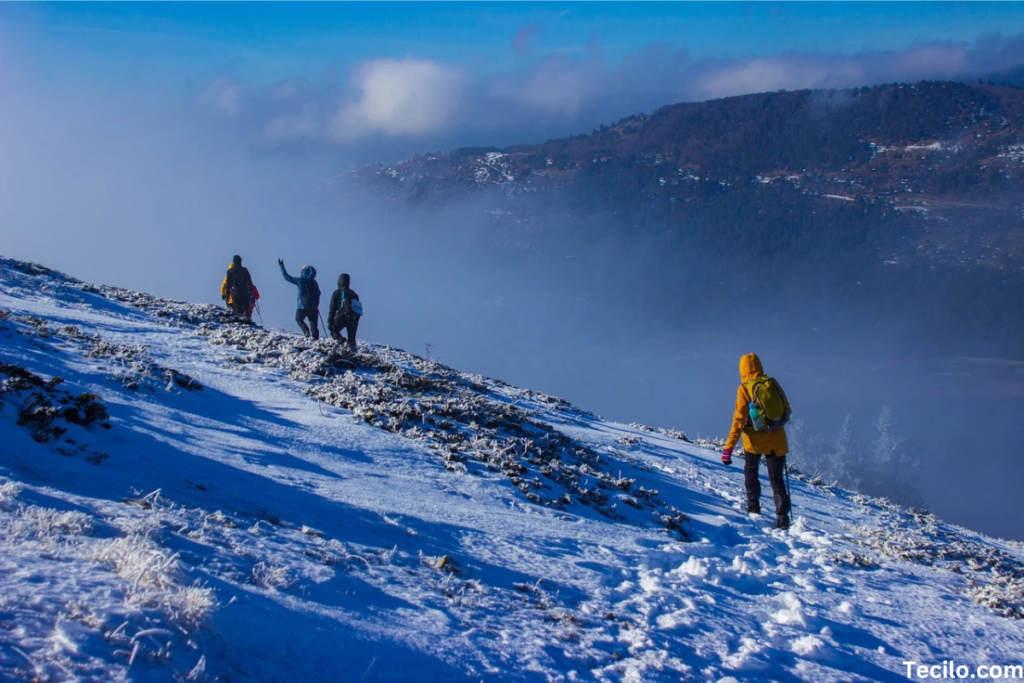
Douglas Barnes is a name synonymous with permaculture, sustainability, and environmental advocacy. Known for his hands-on approach to teaching and his passion for creating lasting environmental solutions, Barnes has influenced countless individuals and communities. Douglas Barnes life’s work is rooted in the belief that humans can live harmoniously with nature while improving both the environment and their own lives through sustainable practices. From his early education to his pioneering contributions in permaculture, Barnes’ journey offers valuable lessons on how we can take action to protect our planet.
Early Life and Education
Birth and Family Background
Douglas Barnes was born into a family that valued education and the outdoors. From a young age, Douglas Barnes was encouraged to explore nature, fostering a love for the environment that would shape his future career. The Douglas Barnes family’s support allowed him to follow his curiosity about how ecosystems function and how humans can interact with them more responsibly.
Education and Early Interests
Barnes pursued an education that blended traditional academics with his passion for nature and sustainability. Douglas Barnes formal studies focused on ecology, environmental science, and sustainable agriculture, giving him the foundation he needed to pursue a career in permaculture. It was during his time in school that Barnes first encountered permaculture principles, which would soon become the cornerstone of his professional life.
Career Beginnings
First Professional Steps
After completing his education, Barnes began his career working on small-scale agricultural projects. His early work involved helping local communities develop more sustainable farming practices. He quickly realized the potential for permaculture to transform not only agriculture but also entire communities by promoting a holistic approach to land use and resource management.
Key Influences and Mentorship
Barnes was heavily influenced by the founders of permaculture, particularly Bill Mollison and David Holmgren. Their teachings on creating self-sustaining ecosystems deeply resonated with him, and he sought to expand upon their ideas by applying them in new and innovative ways. Throughout his career, Barnes continued to learn from his mentors while developing his own unique approach to permaculture.
Contributions to Permaculture
Understanding Permaculture
Permaculture is a design philosophy that seeks to create sustainable systems by mimicking natural ecosystems. Barnes embraced this concept, believing that nature provides all the solutions needed for human survival if we learn how to work with it rather than against it. His work in permaculture has been characterized by practical, easy-to-implement strategies that encourage people to take action in their own lives.
Barnes’ Approach to Sustainable Agriculture
Douglas Barnes’ approach to permaculture emphasized simplicity and accessibility. He believed that anyone, regardless of their background or resources, could adopt sustainable practices that benefit both the environment and their personal well-being. His projects often focused on helping small communities and individuals create productive, resilient ecosystems that required minimal external inputs.
Key Projects and Collaborations in Permaculture
Barnes worked on numerous permaculture projects worldwide, collaborating with local farmers, environmentalists, and governments to implement sustainable agricultural systems. His projects spanned continents, from rural communities in developing nations to urban gardens in densely populated cities. His ability to tailor permaculture principles to diverse environments made his work highly effective and widely respected.
Writing and Thought Leadership
Notable Publications by Douglas Barnes
In addition to his hands-on work, Barnes made significant contributions through his writing. His books and articles offer valuable insights into sustainable living and permaculture design. Some of his most notable publications include “Building a Better World through Permaculture” and “Sustainable Solutions for a Changing World”, where he outlines practical strategies for creating sustainable communities.

Key Themes in His Work
A recurring theme in Barnes’ writing is the idea that small, incremental changes can lead to significant long-term results. He encouraged readers to start with simple steps, such as composting or planting native species, and gradually build a more sustainable lifestyle. His writing also emphasized the interconnectedness of all living systems, highlighting how small actions can have a ripple effect on the broader environment.
Impact on Readers and the Field
Barnes’ publications have inspired thousands of readers to rethink their relationship with the environment. His straightforward, no-nonsense writing style made complex ideas accessible, empowering individuals to take meaningful action in their own lives. His work continues to be cited by environmentalists and permaculturists alike as foundational to the field.
Public Speaking and Workshops
Educational Workshops and Events Led by Barnes
Douglas Barnes was not just a writer but also an engaging public speaker. Douglas Barnes led workshops and seminars around the world, teaching people how to apply permaculture principles in their daily lives. Douglas Barnes workshops were known for their hands-on approach, allowing participants to learn by doing rather than just listening.
Influence on Permaculture Enthusiasts
Many of those who attended Barnes’ workshops went on to become leaders in the permaculture movement themselves. His ability to communicate complex ideas in a clear and relatable way made him a beloved figure in the environmental community. His workshops inspired a generation of permaculturists to take action in their own communities.
Advocacy for Sustainable Practices
Promoting Environmental Awareness
Barnes was a passionate advocate for environmental awareness. He believed that education was the key to driving change and dedicated much of his time to spreading the message of sustainability. His advocacy extended beyond permaculture, encompassing broader environmental issues such as climate change and biodiversity conservation.
Sustainable Living: A Philosophy of Action
For Barnes, sustainable living was not just a theory but a way of life. He practiced what he preached, integrating permaculture principles into his own daily routine. Whether through growing his own food or minimizing waste, Barnes lived his values, inspiring others to do the same.
Legacy in the Field of Environmentalism
Lasting Impact of Barnes’ Work
The impact of Douglas Barnes’ work can still be felt today. His teachings on permaculture and sustainability continue to influence new generations of environmentalists, farmers, and activists. His projects, publications, and workshops have left an indelible mark on the world, promoting a more sustainable way of living.
Global Recognition and Influence
Though Barnes was humble about his achievements, his work gained global recognition. He collaborated with organizations around the world and was sought after for his expertise in sustainable agriculture and environmental design. His influence is seen in both grassroots movements and institutional policies aimed at promoting sustainability.
Personal Philosophy
Barnes’ Views on Humanity’s Relationship with Nature
Douglas Barnes believed that humanity’s survival depended on its ability to work in harmony with nature. He saw humans not as separate from the natural world but as part of it, with a responsibility to protect and nurture the ecosystems that sustain us. This philosophy informed all of his work, from his permaculture projects to his advocacy efforts.
Integrating Sustainability into Daily Life
Barnes encouraged individuals to make sustainability a part of their everyday lives. He often said that living sustainably doesn’t require radical changes but small, consistent actions that accumulate over time. Whether through growing a garden, reducing waste, or conserving water, Barnes believed that everyone could contribute to a more sustainable future.




